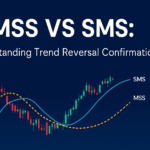Welcome to my article on How Analytics Can Prevent Affiliate Marketers from Earning. In the competitive world of affiliate marketing, analytics tools are essential for tracking performance and optimizing strategies. However, the very tools designed to help marketers succeed can also become obstacles. Here, we explore seven ways in which analytics can hinder affiliate marketers from reaching their earning potential.
>> Here’s the Proven Way to Make $100-$200 Daily with 0 Investment – Watch This FREE Video and Start Now >>

1. Over-Reliance on Data (Affiliate Marketers)
Many affiliate marketers fall into the trap of over-relying on analytics, leading to decision paralysis. They become so engrossed in analyzing data that they fail to take decisive actions. While data is critical, spending excessive time dissecting it can delay implementation of effective strategies and campaigns, causing missed opportunities and lost revenue.
2. Misinterpretation of Data
Misinterpreting data is a common issue among affiliate marketers. Without a solid understanding of analytics, marketers can draw incorrect conclusions from the data, leading to poor decisions. For example, focusing on metrics that appear favorable while ignoring underlying issues can result in ineffective campaigns and wasted resources.
3. Ignoring Qualitative Insights (Affiliate Marketers)
Analytics provide quantitative data, but they often lack qualitative insights that are equally important. Affiliate marketers who rely solely on numbers may overlook the importance of customer feedback, market trends, and other qualitative factors that can significantly impact their strategies. This tunnel vision can prevent marketers from making well-rounded, informed decisions.
4. Data Overload
With the plethora of analytics tools available, affiliate marketers can easily become overwhelmed by the sheer volume of data. This data overload can lead to confusion and hinder marketers from identifying the most critical insights. As a result, they may struggle to prioritize actions that would most effectively boost their earnings.
5. Focusing on Vanity Metrics (Affiliate Marketers)
Vanity metrics, such as likes, shares, and impressions, can be misleading. While these metrics may look impressive, they do not necessarily correlate with actual revenue. Affiliate marketers who prioritize vanity metrics over actionable ones, like conversion rates and customer acquisition costs, risk focusing their efforts on areas that do not directly impact their earnings.
6. Neglecting Real-Time Data
Many affiliate marketers use analytics to review past performance, but neglect the importance of real-time data. Real-time data can provide immediate insights into current campaigns, allowing for quick adjustments and optimizations. Ignoring real-time analytics can result in missed opportunities to enhance performance and increase earnings.
7. Overlooking External Factors (Affiliate Marketers)
Analytics tools often focus on internal metrics, such as website traffic and conversion rates, but fail to account for external factors. Market conditions, economic trends, and competitive actions can all impact affiliate marketing success. Marketers who ignore these external factors in their analysis risk developing strategies that are out of sync with the broader market environment.
>> Here’s the Proven Way to Make $100-$200 Daily with 0 Investment – Watch This FREE Video and Start Now >>
Over-Reliance on Data (Affiliate Marketers)
In affiliate marketing, data analytics is crucial for making informed decisions. However, an over-reliance on data can sometimes hinder progress and profitability. Here are seven points to consider:
- Decision Paralysis: Spending too much time analyzing data can lead to inaction, delaying crucial decisions and missing opportunities.
- Misinterpretation: Without proper understanding, data can be misinterpreted, leading to poor strategic choices and ineffective campaigns.
- Ignoring Creativity: Over-focusing on data can stifle creativity and innovation, essential for standing out in a competitive market.
- Neglecting Audience Feedback: Relying solely on data may cause marketers to overlook valuable qualitative insights from customer feedback and interactions.
- Vanity Metrics: Emphasizing metrics like likes and shares can divert attention from more impactful measures like conversion rates and ROI.
- Real-Time Data: Focusing too much on historical data can prevent marketers from making timely adjustments based on current trends.
- External Factors: Over-reliance on internal data can cause marketers to miss important external influences like market shifts and competitor actions.
Balancing data analysis with creativity, real-time insights, and qualitative feedback is key to successful affiliate marketing. Avoiding over-reliance on data can lead to more dynamic and effective strategies.
Misinterpretation of Data
In affiliate marketing, accurate data interpretation is crucial for successful decision-making. However, misinterpreting data can lead to ineffective strategies and lost revenue. Here are six key points to consider:
- False Positives: Mistaking random success for a trend can lead to misguided strategies that don’t yield consistent results.
- Ignoring Context: Data without context can be misleading. Understanding the circumstances behind the numbers is essential for accurate analysis.
- Overlooking Long-Term Trends: Focusing solely on short-term data can obscure long-term patterns, leading to poor strategic planning.
- Confusing Correlation with Causation: Assuming that a correlation between two variables implies causation can result in ineffective and misplaced efforts.
- Misleading Averages: Averages can hide significant variations within the data. Analyzing median values and distribution can provide more accurate insights.
- Neglecting Segment Differences: Treating all data as uniform can ignore important differences between customer segments, leading to suboptimal targeting and personalization.
Avoiding data misinterpretation requires context, long-term perspective, and careful segmentation analysis. Accurate interpretation ensures more effective and profitable affiliate marketing strategies.
Ignoring Qualitative Insights (Affiliate Marketers)
In affiliate marketing, quantitative data is vital for tracking performance and optimizing strategies. However, ignoring qualitative insights can lead to missed opportunities and incomplete strategies. Here are seven reasons why qualitative insights are crucial:
- Customer Feedback: Direct feedback provides insights into customer satisfaction, preferences, and pain points, which data alone can’t reveal.
- Market Trends: Understanding industry trends through expert opinions and market analysis helps anticipate changes and adapt strategies accordingly.
- User Experience: Qualitative data from user experience research highlights issues with website navigation, content relevance, and overall user satisfaction.
- Emotional Triggers: Quantitative data can’t capture the emotional responses that drive purchasing decisions, which qualitative insights can uncover.
- Brand Perception: Customer reviews and social media comments offer a window into how the brand is perceived, influencing marketing strategies.
- Competitor Analysis: Qualitative insights into competitor activities provide context that raw data lacks, helping to identify strengths and weaknesses.
- Content Relevance: Understanding what resonates with your audience through comments and engagement metrics ensures content remains relevant and engaging.
Incorporating qualitative insights alongside quantitative data creates a more comprehensive understanding of your market and audience. This balanced approach leads to more effective and resonant affiliate marketing strategies.
Data Overload
In the world of affiliate marketing, data is invaluable. However, an excess of data can lead to data overload, causing confusion and inefficiency. Here are seven key points on how data overload can hinder affiliate marketers:
- Analysis Paralysis: Too much data can overwhelm marketers, delaying decision-making and implementation of strategies.
- Difficulty in Prioritization: With an abundance of data, identifying which metrics matter most becomes challenging, leading to misplaced focus.
- Increased Complexity: Complex data sets require more time and expertise to analyze, slowing down the optimization process.
- Resource Drain: Managing and analyzing vast amounts of data can drain resources, diverting attention from other crucial tasks.
- Missed Insights: Important insights can be buried in the flood of data, leading to missed opportunities for improvement.
- Stress and Frustration: Constantly dealing with excessive data can cause stress and frustration, impacting overall productivity and morale.
- Loss of Focus on Goals: Overwhelmed by data, marketers may lose sight of their primary goals and objectives.
Balancing data collection with actionable insights is key. Streamlining data focus ensures efficient and effective affiliate marketing strategies, avoiding the pitfalls of data overload.
>> Here’s the Proven Way to Make $100-$200 Daily with 0 Investment – Watch This FREE Video and Start Now >>
Focusing on Vanity Metrics (Affiliate Marketers)
In affiliate marketing, metrics are essential for measuring success. However, focusing on vanity metrics can be misleading and detrimental. Here are eight reasons why prioritizing vanity metrics can hinder your progress:
- Superficial Success: Metrics like likes and shares look impressive but don’t necessarily translate to sales or revenue.
- Misleading Data: High engagement on social media may not reflect actual interest or purchasing intent from your audience.
- Resource Misallocation: Investing time and money into improving vanity metrics can divert resources from more impactful strategies.
- False Security: Good-looking metrics can create a false sense of security, masking underlying issues that need attention.
- Neglecting Conversions: Vanity metrics can distract from conversion rates, which are more indicative of your campaign’s effectiveness.
- Inadequate ROI Measurement: Focusing on non-financial metrics makes it harder to measure the true return on investment of your marketing efforts.
- Short-Term Focus: Vanity metrics often provide short-term gratification but fail to support long-term growth and sustainability.
- Customer Insight Blindspot: They provide little insight into customer behavior, preferences, and pain points, crucial for refining strategies.
To achieve sustainable success in affiliate marketing, focus on actionable metrics like conversion rates, customer acquisition costs, and ROI. Avoid the trap of vanity metrics to ensure meaningful growth and profitability.
Neglecting Real-Time Data
In affiliate marketing, real-time data is crucial for staying competitive and responsive. Ignoring real-time data can lead to missed opportunities and reduced effectiveness. Here are seven key points on why real-time data is vital:
- Immediate Adjustments: Real-time data allows marketers to quickly tweak campaigns for better performance and higher ROI.
- Trend Identification: Keeping up with current trends helps in aligning strategies with what’s currently popular and effective.
- Competitive Edge: Monitoring real-time data helps stay ahead of competitors by responding swiftly to market changes.
- Enhanced User Experience: Real-time insights into user behavior enable immediate improvements to website navigation and content relevance.
- Timely Offers: Real-time data helps in creating and pushing timely promotions that resonate with the current needs of the audience.
- Crisis Management: Immediate data helps in identifying and addressing issues quickly, preventing potential damage to brand reputation.
- Informed Decisions: Decisions based on the latest data are more accurate and relevant, leading to better overall campaign performance.
Incorporating real-time data into your affiliate marketing strategy ensures you remain agile, responsive, and effective. This proactive approach can significantly enhance your campaign outcomes and profitability.
Overlooking External Factors (Affiliate Marketers)
In affiliate marketing, focusing solely on internal data can lead to missed opportunities and strategic missteps. Here are six reasons why considering external factors is crucial:
- Market Trends: Keeping an eye on industry trends helps in aligning your strategies with current market demands and preferences.
- Economic Conditions: Economic shifts can impact consumer spending habits, influencing the success of your marketing efforts.
- Competitive Actions: Monitoring competitors’ strategies allows you to adapt and stay competitive in the market.
- Regulatory Changes: Staying updated with regulatory changes ensures compliance and avoids potential legal issues.
- Technological Advancements: Adopting new technologies can provide a competitive edge and improve marketing efficiency.
- Social Influences: Understanding social trends and cultural shifts can help in creating more relevant and engaging content.
Incorporating external factors into your affiliate marketing strategy ensures a comprehensive approach, enhancing adaptability and effectiveness. Balancing internal and external insights is key to sustained success and profitability.
Conclusion
While analytics are indispensable for affiliate marketers, they can also become a double-edged sword. Over-reliance, misinterpretation, data overload, and a focus on vanity metrics can all hinder marketers’ ability to earn effectively. By balancing quantitative data with qualitative insights and keeping an eye on real-time information and external factors, affiliate marketers can avoid these pitfalls and maximize their earning potential.
>> Here’s the Proven Way to Make $100-$200 Daily with 0 Investment – Watch This FREE Video and Start Now >>
Thank you for taking the time to read my article “How Analytics Can Prevent Affiliate Marketers from Earning”, hope it helps!














1 thought on “How Analytics Can Prevent Affiliate Marketers from Earning”